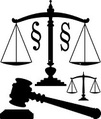Telephone (305) 251-6221
Fax (305) 251-9793
Email contessalaw@Gmail.com
15321 South Dixie Highway Suite 207
Palmetto Bay , Florida 33157

FORECLOSURE is the legal process in which a lender or association attempts to obtain title to a property as a result of a default of payment. The Plaintiff is required to prove to a Court that, as a result of a default by the owner, the owner's property should be sold. If the Plaintiff is successful, the Court will order that the property be sold and the owner removed from the property. After the sale, the Plaintiff may ask the Court for an award of money because the sale of the property did not generate enough money to satisfy its claim. This is called a deficiency.
The lender must follow the correct legal procedure and properly prove its case to the Court. There are numerous steps and protections for the Defendants. It is advisable to have a professional review the documentation that the Bank files with the Court. Sometimes the Bank makes mistakes or does not follow the correct procedure. The process is not automatic and may take many months. There are numerous cases in which the process has taken years. There are also cases in which the Bank has not been able to prove its case was not allowed to foreclose the property. The Defendant has numerous rights and defenses to the action for foreclosure which must be raised or they are waived.
Paul Contessa has experience in foreclosure defense and can present your rights and defenses in the foreclosure process.
MORTGAGE MODIFICATION is a voluntary procedure in which the lender reviews facts about the property and the financial situation of the borrower and changes the terms of the loan so that the borrower can make more affordable payments. The borrower or his agent contacts the lender and requests a modification and the lender may indicate the information it will consider.
The lender may or may not allow a modification. The decision is up to the lender or its investor. It does not matter how much you pay an attorney or realtor or whether you make temporary payments. No one can force a lender to accept a modification. In many cases, despite need and the loss in value of the property, the lender will not allow a modification.
The foreclosure process is independent of the modification. If you are served with legal papers which includes a Summons and a Complaint for Foreclosure, do not neglect the foreclosure because you are attempting a modification. The attorneys for the lender do not know about the modification. They do not stop foreclosing because the borrower is attempting a modification. Do not waive your rights while attempting to modify a mortgage.
A modification may reduce the interest rate or principal or, in some cases, both. If the interest rate is reduced the payments will be reduced for a period of time. Frequently, the balance of the missed payments will be added to the end of the loan. This provides temporary relief but may not provide permanent relief if the balance of the loan is in excess of the value of the property. Some modifications will allow the reduction of the principal on the loan. This provides a better long term solution when it is available.
FORECLOSURE AND BANKRUPTCY Bankruptcy provides several advantages in the foreclosure area. The filing of a bankruptcy automatically stops the foreclosure if the Bankruptcy is filed before the foreclosure sale. This is done so that the bankruptcy court can determine the rights of all the creditors and the rights of the owner.
In a modification, the lender will consider the borrowers' obligations for credit cards and other bills. A bankruptcy may help reduce the other debt such as credit cards and medical bills which will allow the owner more money to pay the lender on the mortgage payments.
In a Chapter 13 bankruptcy, an owner can catch up missed payments over time. In many cases a second mortgage or line of credit may be eliminated if the value of the property is less than the balnce owed on the first mortgage.
A second mortgage holder may sue "on the note". This means the lender is not foreclosing but is suing for the money. The lender knows there is no equity in the property but wants its money from other sources. This could be done years after the foreclosure. A bankruptcy may eliminate this debt.
After a foreclosure a lender may obtain a deficiency judgment for the .difference between the debt and the amount the lender got from the sale. This could also take place years later. A bankruptcy may also eliminate this debt.
